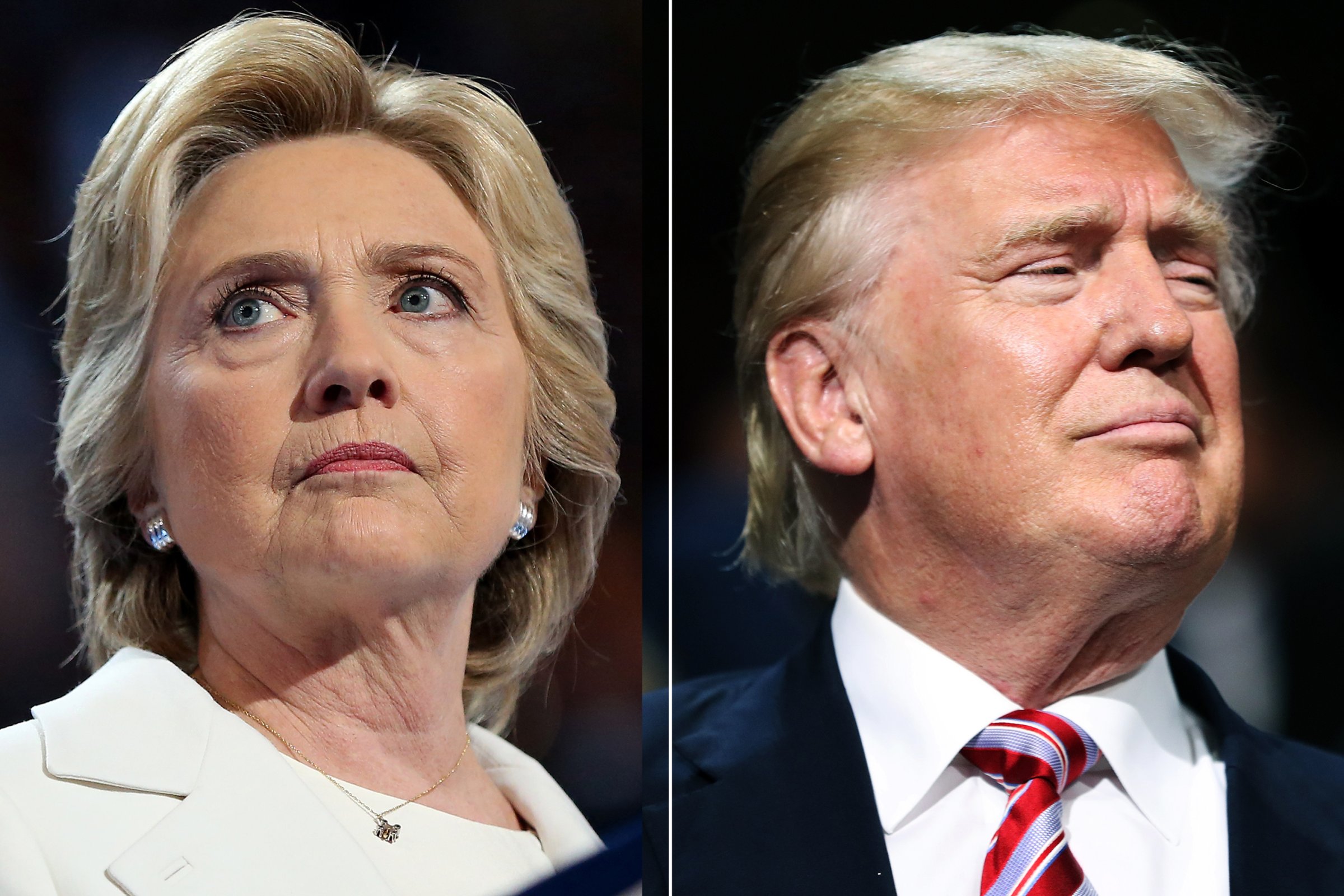
Even more than usual, this cycle’s Republican and Democratic conventions present a study in contrasts. The personalities, positions advanced and above all the tones of the two gatherings—one almost uniformly ominous, the other swinging from inspiring to sanctimonious—could hardly have been more different.
And yet both camps have one thing in common: Both insist that what is at stake in November is the survival of the nation’s essential moral character and standing in the eyes of its people, the world and history. Both are constructing the debates and decisions required of voters this election as something approaching a moral equivalent of war.
Donald Trump and company invoke martial imagery and evoke the martial spirit most explicitly. From his forward base in Cleveland, Trump surveyed an America under siege, with enemies surrounding, infiltrating and fatally weakening it. The situation as he sees it is so perilous that all our patriotism, pugnacity and steely determination to do the dirty work of defending freedom is required—including ceding moral and political authority to the one man who “alone can fix” our nominally self-governing society. There is no time for politically correct appeasement of the nation’s many enemies, actual or potential; no justification for including the excluded, only to preclude the rest of us from securing and reclaiming our once-great nation. Change is a Trojan Horse.
Hillary Clinton and company offer a different and less obvious version of the war analogy, akin to that proposed by the American philosopher William James in his essay, “A Moral Equivalent of War,” published more than a century ago. Like James, the Democratic leaders who rallied the troops in Philadelphia recognize the power of martial rhetoric and the intrinsic worth, even beauty, of “martial virtues” like patriotism, self-sacrifice, constancy under duress and willingness to fight for dearly held rights and hard-earned privileges—virtues, James wrote, which “trained societies to cohesiveness.” Again like James, however, they recognize that when stemming from or glorifying violence, such “ideal fruits” are as often crushed as harvested. Thus Clinton and field marshals Bernie Sanders, Tim Kaine and President Obama enjoin us to channel our fear, self-interest, pugnacity and tribal instincts into organized civic action: a collective assault on the barriers that make Clinton and Obama such anomalies of American sociology, and a Sanderian “revolution” to demolish their cultural, social and institutional foundations.
The fight, as Clinton is wont to remind us, is not to become stronger than others but “stronger together.”
Still it is clear that the speechwriters in Philadelphia did not read James’s essay, or else missed its point. The “civic passion” James urged Americans to muster was not a passion for economic security or even equality as an end in itself, and the “civic honor” he urged them to cultivate was not the honor of vanquishing plutocrats and hauling off their booty. James decried the inequality of his own Gilded Age, to be sure; but he recognized that its roots were both structural and cultural, and that the only sustainable remedy for bad policies is good citizens.
Good citizens do not merely demand liberty and equality (though they should), but view their liberty and equality as public goods to be used for public ends. Good citizens do not merely study their nation’s glorious past (though they may), but seek to understand its complicated present and shape its uncertain (but certain-to-be-different) future. Good citizens do not merely articulate their interests, opinions and principles in the language of inclusivity, but embrace the hard work, moral humility and imperfect compromises that make an inclusive common life possible.
So instead of a war to reclaim an unregulated capitalist paradise or wall off a culture from change (and make Mexico pay), and instead of a campaign to restore Glass-Steagall or quarantine workers from their colleagues worldwide (and make Wall Street pay), voters on all sides should demand a different standard of democracy—one to which citizens can rally. The party flying that standard would abandon the pursuit of purely abstract (and in practice unequal) rights as well as purely static (and nostalgically sentimentalized) programs for realizing them. Above all it would explicitly reject a vision of democracy as merely a process of voting and then getting or losing what’s yours. Its major objective and most effective weapon would be a genuine civic ethos: a commitment, among leaders and citizens, to balance divergent ideals and experiences by collaborating across differences and accepting that conflict, though inevitable, is only evil if it precludes frank discussion and collective experimentation.
More Must-Reads From TIME
- The 100 Most Influential People of 2024
- The Revolution of Yulia Navalnaya
- 6 Compliments That Land Every Time
- What's the Deal With the Bitcoin Halving?
- If You're Dating Right Now , You're Brave: Column
- The AI That Could Heal a Divided Internet
- Fallout Is a Brilliant Model for the Future of Video Game Adaptations
- Want Weekly Recs on What to Watch, Read, and More? Sign Up for Worth Your Time
Contact us at letters@time.com